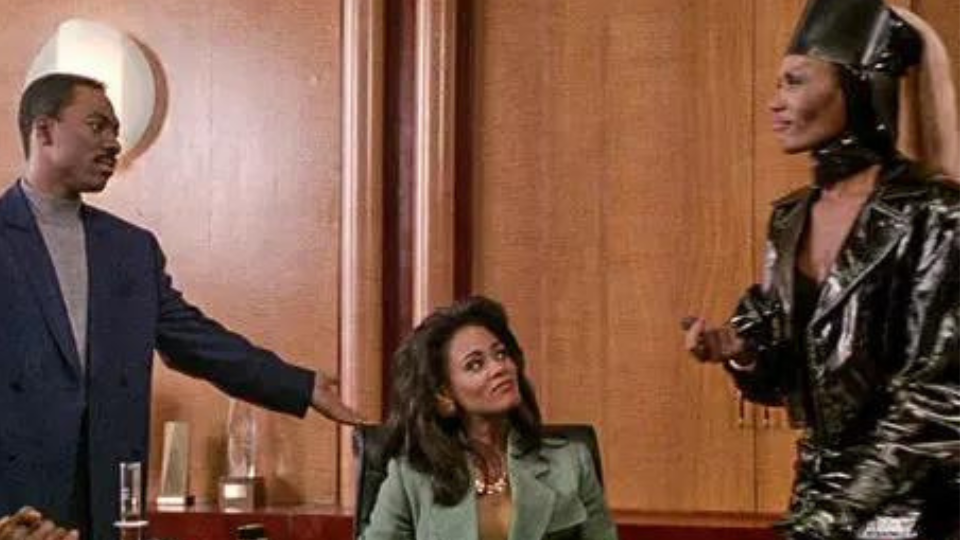
Click on the play button to listen to the audio version.
In 1992, Eddie Murphy was one of the biggest stars in the world. At 30, Murphy had already starred in ten studio films and built two billion-dollar franchises with “48 Hours” and “Beverly Hills Cop.”
“Boomerang” was a different kind of film. It was a movie about friendship, loyalty, and romance set in NYC at a medium-sized Black-led company that sold beauty products. Boomerang had an all-black cast and a plot that had nothing to do with being Black. While that was unheard of at the time, Murphy was such a big star that it didn’t seem like a big deal.
What is most interesting to me is that even though the film received mixed reviews upon release, it has withstood the test of time and is still fun to watch more than thirty years later. Critics mostly said the movie was predictable but still entertaining.
Eddie Murphy was obviously trying to expand his range. I don’t think he was trying to make a political statement, but I think the film is extraordinary partly because it portrays Black characters in a setting that was not common at the time. All the leads were sophisticated business people dealing with the same problems as everyone else. Unlike “Boyz n the Hood,” released only one year earlier, there weren’t any crimes in “Boomerang,” and nobody got killed. Beyond being a fun film to watch, I think Eddie Murphy and “Boomerang” positively contributed to the Black brand in America without trying.
Allow me to explain why this matters. I have been a partner at L’ATTITUDE Ventures for the last three years. During that time, I learned a lot about the investment community, which made me even more attentive to the narrative about Hispanics in America. If I were in control of a lot of capital, I would want to invest that capital in things that would give me a strong return on my investment while positively contributing to humanity. I would probably avoid investing my capital in communities that are full of problems. Let’s face it: if I were in that position and got all of my information about the Hispanic community from the media, I might have a negative opinion about Hispanics and, therefore, would invest our money elsewhere.
Make no mistake: access to capital is everything in a capitalistic society. Without money, your ideas don’t matter (Where have I heard that?)
At NAHREP and L’ATTITUDE, creating an accurate and positive narrative about Latinos is a high priority. Our primary tool is data, but art can move people in a way that reports and data just can’t.
We need more films and TV shows with Latino leads that have nothing to do with crime, drugs, or murder. We also need good films with Latino leads that have nothing to do with being Latino. Politicians can convince people that Latino immigrants bring crime and are a drag on our economy because that is precisely how we are portrayed in the media.
Perceptions matter, and I still await the Latino version of “Boomerang” or “Crazy Rich Asians.”
